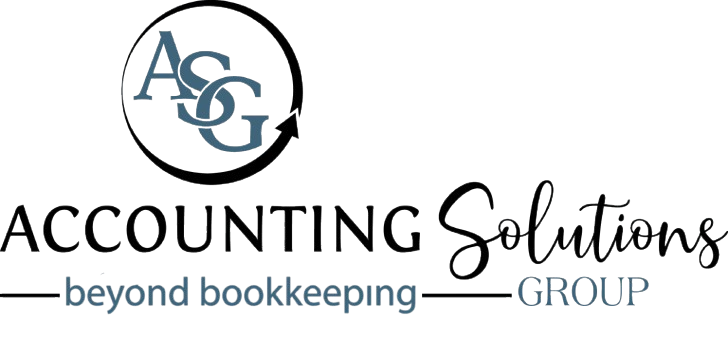Strategies for Managing Cash Flow in Pompano Beach
Effective cash flow management is vital for the success and sustainability of small businesses. Maintaining a healthy cash flow ensures you can meet your financial obligations, invest in growth opportunities, and weather unexpected challenges. Here are some key strategies to help you manage your cash flow effectively.
1. Create a Cash Flow Forecast: A cash flow forecast helps you anticipate incoming and outgoing cash, allowing you to plan for future expenses and identify potential shortfalls. Regularly update your forecast to reflect actual performance and adjust for changes in your business environment.
2. Accelerate Receivables: Speed up the process of collecting payments from customers to improve cash flow. Implement strategies such as:
- Invoicing Promptly: Send invoices immediately after a sale or service is completed.
- Offering Early Payment Discounts: Encourage customers to pay early by offering a small discount for prompt payment.
- Using Online Payment Systems: Provide convenient online payment options to make it easier for customers to pay you quickly.
3. Manage Payables Strategically: Optimize your payment schedule to maintain a healthy cash flow. Consider the following tactics:
- Negotiate Payment Terms: Work with suppliers to extend payment terms without incurring late fees.
- Prioritize Payments: Pay essential expenses first, such as payroll and critical suppliers, and schedule other payments based on their due dates.
4. Control Operating Expenses: Regularly review your operating expenses and identify areas where you can reduce costs without compromising quality. This might include:
- Renegotiating Contracts: Seek better terms with suppliers or service providers.
- Adopting Cost-Effective Technologies: Implement software and tools that streamline operations and reduce overhead costs.
- Cutting Unnecessary Expenses: Eliminate non-essential spending and focus on expenses that directly contribute to your business’s growth.
5. Maintain an Emergency Fund: Set aside a portion of your profits to create a cash reserve for emergencies. This fund can help you cover unexpected expenses, such as equipment repairs or sudden drops in revenue, without disrupting your regular cash flow.
6. Monitor Cash Flow Regularly: Regularly review your cash flow statements to stay informed about your financial position. Monitoring cash flow allows you to spot trends, identify potential problems, and make informed decisions to maintain financial stability.
7. Improve Inventory Management: Efficient inventory management can free up cash tied in unsold stock. Implement practices such as:
- Just-In-Time Inventory: Order inventory as needed to reduce holding costs.
- Regular Inventory Audits: Conduct frequent audits to ensure optimal inventory levels and identify slow-moving items.
8. Use Financing Options Wisely: Consider using financing options like lines of credit, loans, or factoring to bridge cash flow gaps. However, use these options judiciously and ensure you understand the costs and terms involved.
By implementing these strategies, you can effectively manage your cash flow, ensuring your small business remains financially healthy and poised for growth. Let us help you develop and maintain a robust cash flow management plan, giving you the confidence to navigate the financial challenges of running a business.
Ready to simplify your bookkeeping? Our South Florida experts can handle everything from setup to year-end reconciliation. Contact Us Today
Service areas: Strategies for Managing Cash Flow in Pompano Beach
Broward County: Coral Springs, Coconut Creek, Cooper City, Davie, Fort Lauderdale, Hallandale Beach, Hillsboro Beach, Hollywood, Lauderdale Lakes, Lauderdale-by-the-sea, Lauderhill, Lighthouse Point, Margate, North Lauderdale, Oakland Park, Parkland, Pembroke Pines, Plantation, Pompano, Southwest Ranches, Sunrise, Tamarac, Weston & Wilton Manors.
Palm Beach County: Boca Raton, Boynton Beach, Deerfield Beach, Delray Beach, Lake Worth, Wellington & West Palm Beach.
Miami-Dade County: Aventura, Bal Harbour, Bay Harbor Islands, Biscayne Park, Coral Gables, Cutler Bay, Doral, El Portal, Florida City, Golden Beach, Hialeah, Hialeah Gardens, Homestead, Indian Creek, Key Biscayne, Medley, Miami, Miami Beach, Miami Gardens, Miami Lakes, Miami Shores, Miami Springs, North Bay Village, North Miami, North Miami Beach, Opa-locka, Palmetto Bay, Pinecrest, South Miami, Sunny Isles Beach, Surfside, Sweetwater, Virginia Gardens & West Miami.
Read more about our services:
Bookkeeping for Local Startups in Fort Lauderdale
FAQ’s: Strategies for Managing Cash Flow in Pompano Beach
1. What services does Accounting Solutions Group provide?
We offer comprehensive accounting services, including bookkeeping, tax preparation, financial planning, payroll processing, and business consulting tailored to your needs.
2. Do you work with small businesses or larger corporations?
We specialize in providing customized accounting solutions for small to medium-sized businesses, but we also serve larger corporations and individual clients.
3. What industries do you serve?
We cater to a wide range of industries, including retail, healthcare, construction, technology, real estate, and more.
4. Can you help with IRS audits or tax issues?
Yes, our experienced team can assist with IRS audits, tax resolutions, and ensuring compliance to help you navigate any tax challenges effectively.
5. Do you offer virtual or remote accounting services?
Absolutely! We provide secure virtual and remote accounting services to make it convenient for you to manage your finances wherever you are.
6. What makes Accounting Solutions Group different from other firms?
Our personalized approach, focus on accuracy, and commitment to understanding each client’s unique financial goals set us apart. We aim to build long-term partnerships for your success.
7. How do you ensure the confidentiality of my financial data?
We use state-of-the-art security measures, including encrypted systems and secure file-sharing platforms, to protect your sensitive financial information.
8. Do you offer a free consultation for new clients?
Yes, we offer a free initial consultation to discuss your accounting needs and determine how we can best support your goals.
9. Can you help me set up accounting software for my business?
Yes, we can recommend, set up, and provide training for leading accounting software, including QuickBooks, Xero, and others, to streamline your financial operations.
10. How often will I receive updates on my financial status?
We provide regular updates based on your preferences—whether weekly, monthly, or quarterly—so you’re always informed about your financial position.



